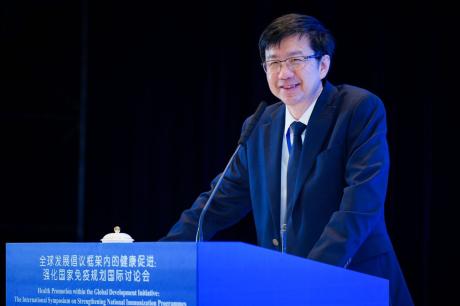
I ventured from the medical school over to this part of the The University of Cape Town to get my visiting student ID card and was blown away by the beautiful campus
Published May 21, 2015, last updated on June 3, 2020 under Voices of DGHI
I’m writing now from a book store/coffee shop combo from the Observatory suburb in Cape Town, South Africa. I’m here in Cape Town for my master’s thesis fieldwork, which will also include traveling to Yaoundé, Cameroon; I will spend about six weeks in each country. I am part of the Bass Connections Sickle Cell project at Duke and will be conducting my own social science research on social and medical support systems for patients with sickle cell disease (SCD) in both cities. These two sites are interesting because they are opposites in terms of the support they offer these patients. While South Africa provides advanced healthcare and treatment options for its SCD patients, there is limited social support because the prevalence of SCD is very low. In contrast, Cameroon does not have the same medical resources for its patients, but due to high prevalence of SCD, there are many support groups and opportunities to receive social support. I will be interviewing adult SCD patients and parents of pediatric SCD patients in both sites about their experience with this disease and their health outcomes.
After two days of solid traveling—22 hours of flying time and 16 hours of layovers—I finally made it to Cape Town on Saturday afternoon. Without sparing much time for jetlag recovery, I showed up to my department at The University of Cape Town at 8am on Monday morning. I’m working with Dr. Ambroise Wonkam, a geneticist at the University and also part of our Bass Connections team at Duke. It’s been a great experience so far, but definitely overwhelming at times. I must have been introduced to about 20 people on the first day! I’m working in the Human Genetics Department inside the medical school (which I’m pretty sure was designed like a maze on purpose to weed out subpar students) but I’ve learned to successfully navigate to the office, restroom, and cafeteria, so I think I’m set.
Cape Town is a unique mash-up of Africa and Europe and I’m trying to learn about the history as much as possible. The weather has been beautiful so far but I’ve been told repeatedly that WINTER IS COMING. In fact yesterday someone told me that soon it will be so cold and rainy that I “will think God has deserted me.” So, I’m not looking forward to that ominous prediction. I’m still getting used to all the different accents—which actually means I’m the one with the accent—and I love listening to the conversations flowing around me. My brain is also exploding with conversions between kilometers, Celsius, and South African rand. I’ve also never been anywhere where they drive on the left side of the road, so I’ve been concentrating hard at every intersection to avoid getting smashed by the mini-taxis.
As of now, I would describe my project as controlled chaos; the logistics are mostly figured out but the execution is sometimes off. For example, Tuesday I was going to interview some parents at the Red Cross Memorial Hospital, but we found out after my mentor and I showed up that the clinic was closed that day. Yesterday (after a few miscommunication mishaps about where I was supposed to be and when) I went to the adult hematology clinic at Groote Shuur Hospital, where I was able to interview an adult sickle cell patient. Although the structure of our interview went differently than I originally planned, I thought it went well; flexibility is key! Since this was my first interview, I considered it a pilot.
The interview took place in the examination room with the doctor, patient, and a PhD researcher doing a separate study. The patient had already waited at the clinic multiple hours before the doctor was ready to see him. The first part of my interview guide contains demographic, medical, and financial questions and the second part is more of an open-ended in-depth interview. I was able to fill in a lot of the demographic and medical history while the doctor interviewed the patient initially. Then after discussing his medical problems, it was my turn to ask him about his experience living with sickle cell disease. I was surprised at how open and willing to share the patient was. He told me some very personal thoughts and feelings that’s he’s had in relation to his illness; he seemed excited to talk about his condition. I learned so much from him and will restructure some of my questions and ask new ones based on his feedback.
One thing I was not prepared for, besides how openly he shared some of his darker moments with this disease, was his last question. He brought up the beginning of the interview when I had asked him if he had ever been to a support group, and asked if there was one he could join. He seemed so excited and interested in the idea that it was crushing to have to tell him that there actually isn’t one here. The other student mentioned that it may be possible to set one up; I’m not here long, but I would love to get one going. I knew beforehand that sickle cell disease is very neglected, especially in this part of the world, but it was eye-opening to see the lack of social support resources firsthand and what that actually means for those affected with SCD.


